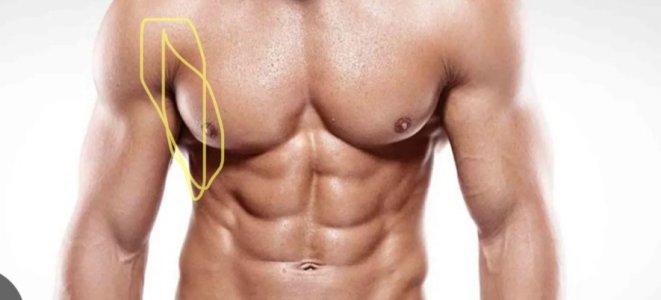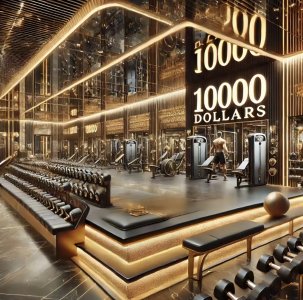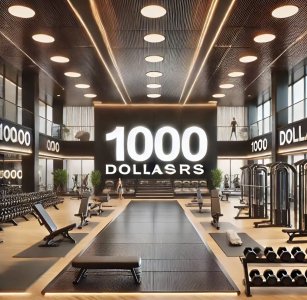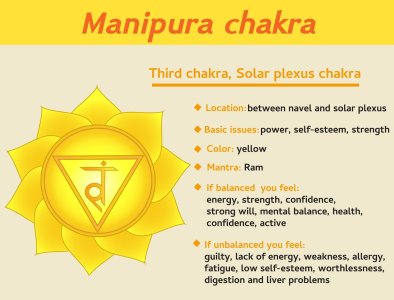What is the difference between a weightlifter and a bodybuilder? A weightlifter goes to the gym, picks up heavy objects, and then puts them back down again. A bodybuilder also does that, but also controls his diet to reflect a desired body composition goal. The bodybuilder is always looking to either get bigger or leaner, and in order to achieve that goal, he must know how to control his calories.
No matter how hard you work in the gym, calories and the macronutrients that make up those calories are what determines what you see in the mirror each day. Everyone has heard the expression "You are what you eat", and that is exactly the truth. You just have to know how many calories to consume, and how those calories should be broken down into macronutrients.
Maintenance:
Maintenance is referred to as the number of calories that you can consume each day to maintain your current weight. Everyone will have a different amount of maintenance calories based on a number of factors like weight, age, and metabolism. There are a number of ways out there to calculate a ballpark estimate of what your maintenance calories are, but here is a simple equation that seems to work for most to help you get started...
Endomorphs (slow metabolism): bodyweight in lbs x 12-13
Mesomorphs (average metabolism): bodyweight in lbs x 15
Ectomorphs (fast metabolism): bodyweight in lbs x 16-17
These are rough figures, but enough to give you an idea of where to start to figure out the amount of calories your body needs per day to maintain its current weight.
Note: You will also have to take in account any extra activity you are doing to add to your maintenance each day. If you burn 400 calories doing cardio or weight training for example, it would raise your daily maintenance level by the amount burned (400 calories). This is also an additional benefit if weight loss is your goal. If you did cardio and burned 500 calories, and ate at maintenance calories for the day, you would still be at a deficit for weight loss of 1 lb per week due to your activity
Gains and losses:
Once you know what your daily requirements for maintenance, you can then figure out what caloric level you need to be at to accomplish your goal, whether it be to gain or lose weight. Obviously in order to gain weight, your body will need a surplus of calories above its normal maintenance level, and you will need a deficit below your maintenance calories in order to lose weight. The maximum rate of weight gain recommended is 1-2 lbs per week in order to keep the gains lean while limiting fat gain, and the maximum rate of fat loss recommended is 1-2 lbs per week in order to preserve muscle mass while losing weight.
It takes roughly 3500 calories to equal 1 pound of bodyweight. So, it would take 3500 calories extra per week to gain a pound or 3500 calories less to lose a pound. That comes out to 500 calories a day. For example, if your goal was to gain weight at a rate of 1 lb per week, and your daily maintenance calories were 2500 you would need 3000 calories per day (not taking in account extra calories needed for activity)
So now that you get the general idea of caloric requirements, and how many you need to gain or lose weight, now you just need to know how to break those calories down into macronutrients to ideally fit your goal.
Macronutrients:
There are three macronutrients that calories come from. They are protein, carbohydrates, and fats. They are all important for different reasons, and the amounts and types of each that you consume can really make a dramatic impact on your overall body composition. Even though you have a specific caloric target each day to reach your goal, you must have an ideal macronutrient breakdown of those calories that will suit your goal for the best possible results.
As a general rule of thumb:
Protein is 4 calories per gram
Carbohydrates are 4 calories per gram
Fat is 9 calories per gram
Protein:
Protein is arguably the most important macronutrient in a bodybuilders diet. It takes a lot of protein to maintain, support and build muscle in the body.
Protein molecules are made up of smaller units called amino acids. Once a protein molecule is broken down into amino acids, they are transported to muscle cells through the bloodstream to be used as the building blocks for muscle tissue.
For bodybuilding purposes, the minimum amount of protein recommended is around 1 gram per pound of bodyweight. The maximum amount of protein intake recommended is debatable, but most agree on between 1.5 grams to 2grams per pound of bodyweight as the most amount of protein to consume on a daily basis. When carbohydrates and fats are lower (generally when cutting calories to lose weight) the higher end of protein intake is preferred, as your body will be forced to use more protein for energy, requiring the extra surplus.
The most common recommended forms of protein to intake are any lean meats like chicken breast, turkey, and fish. Other great forms of protein are eggs or egg whites, and Whey protein. All of these types of protein are great additions to the bodybuilders diet, and all have different digestion rates. Whey protein, for example is digested very rapidly, making it ideal for post workout consumption and protein synthesis.
Carbohydrates:
Carbohydrates are a bodybuilders primary energy source. Carbohydrates are converted to glycogen and stored within the muscles to be used as energy. They are also what gives bodybuilders a bigger and fuller look, when glycogen stores are at their maximum capacity in the body. Carbohydrates are responsible for giving you the energy needed to fuel through vigorous exercise. Carbs are also muscle sparing. When enough carbs are consumed, the body will not break down protein for energy and use the carbs for energy instead. Carbohydrates cause insulin release, which is extremely beneficial for bodybuilding, considering insulin is the most anabolic hormone in the body!
It becomes clear that consuming enough carbohydrates is crucial for bodybuilding purposes, however carbohydrate intake needs to be controlled if fat loss is the goal. We already mentioned that consuming carbohydrates causes an increase in insulin, which is great for building muscle. However, Insulin also has a role in the storage of free fatty acids as body fat. So, what that means is that, if we keep our insulin levels low, than we will end up with our fuel being primarily fat, instead of being stored as fat. This is why lower carbohydrate intakes may be preferred when the goal is fat loss.
There are many different forms of carbohydrates ranging from pastas, sugars and breads to grains among others. Often times these carbohydrates are referred to as either simple or complex carbohydrates. There are a time and place where each of them should be used. For example, simple carbohydrates will cause a bigger insulin spike and are absorbed very rapidly, making them ideal for post workout consumption, where complex carbs are digested slowly over time. Adding complex carbs preworkout will provide a better continuous supply of energy throughout a workout.
One important thing to pay attention to with carbohydrates is its glycemic index. A carbs GI rating indicates its digestion rate, and effect on insulin. Glucose has a rating of 100 (meaning it is digested almost immediately and causes the biggest spike on insulin). Every other form of carbohydrate is compared to glucose with its rating, so the lower the GI number, the lower its digestion rate and effects on insulin. Since its ideal to keep insulin levels lower for fat loss, in order for the body to burn fat as energy, it only makes sense that the carbs you consume when dieting down should come primarily from low to moderate glycemic index carbohydrates.
Note: Everyone will have different sensitivities to carbs, and different metabolic rates, meaning completely different amounts of carbohydrates may be needed and are very user specific.
Fats:
Dietary fat is probably the least understood macronutrient in its role of a bodybuilders diet. Having a properly balanced diet with dietary fat is essential for a number of reasons.
Cell membranes in the body are made up of fat, so fat is essential to keep properly functioning cell membranes. Without that, there would be no way to regulate which substances could or could not enter cells. Fat is an insulator in the body, helping to regulate body temperature, and to protect vital organs. Your brain specifically, is largely dependent on sufficient fat intake to in order to function properly. Many vitamins and minerals are "fat soluable", meaning that they require fat in order to be digested and used properly by the body. Lastly, Fat is also responsible for helping to regulate hormone levels in the body as well as regulating blood sugar and insulin.
Fats are a great thing when looking to bulk up and add muscle, because they are the most caloric dense macronutrient. There is more than twice the amount of calories in one gram of fat than there is in either protein or carbs. This is especially beneficial for the hard gainer that is finding it hard to get in enough calories. Adding extra fat into the diet, can add up very quickly when trying to get a higher calorie total each day. However, when looking to drop body fat, it is obviously important to limit fat intake due to the higher caloric content and to get the desired energy deficit to burn fat.
The kinds of fat to ingest is also very important to pay attention to. There are good fats and bad fats. You should avoid the bad fats such as trans fats as much as possible. The fats you should concentrate on including into your diet plan should be a combination of Omega-3 fatty acids (DHA and EPA), monounsaturated, and polyunsaturated fats. Examples of these types of healthy fats are fish such as salmon and tuna; oils from flaxseed, olive, canola, soybeans and fish oils; nuts from almonds, walnuts, and cashews and peanut butter.
Putting it all together:
There is a lot of different ideas and examples of the proper amounts and ratios of macronutrients to use for a specific goal. People can get different results from different things, and so the ratio that works for one may not be the most ideal for another.
Some of the more popular ratios would be 30/40/30 or 40/40/20 (%protein/%carbs/%fats) for a bulking diet that would have higher intakes of carbs and fats. For a cutting diet, it would be common to see a diet similar to 50/35/15 or even 60/30/20 having a higher protein content and lower amounts of carbs and fats.
So for example,
A 170 lb guy with an average metabolism looking to gain a pound a week with a 40/40/20 diet would look like this.
Maintenance cals: 170x15= 2550 maintenance calories
Total Calories needed: 2550+500 per day= 3050 calories
3050x40%= 1220 calories from protein (305 grams)
3050x40%= 1220 calories from carbs (305 grams)
3050x20%= 610 calories from fat (68 grams)
Another example of a 200 lb guy with average metabolism looking to lose a pound per week with a 60/30/20 ratio:
Maintenance calories: 200x15= 3000 maintenance calories
Total calories needed: 3000-500 per day= 2500 calories
2500x60%= 1500 calories from protein (375 grams)
2500x30%= 750 calories from carbs (188 grams)
2500x20%= 500 calories from fat (56 grams)
All of this should help you get an idea of how important calories are for the bodybuilder, and how to properly implement them into your diet plan to help you reach your goals.
There are a number of calorie counting sites and mobile apps that make calorie counting even easier to track. Just enter in the amount of each item you eat, and they will figure up and track every thing for you! I highly recommend using a food scale and measuring cups to properly portion your foods to keep everything accurate.
Here are a few of the more popular sites that you can use to help you track your calories:
http://www.fitday.com/
http://www.myfitnesspal.com/
http://www.livestrong.com/myplate/






































